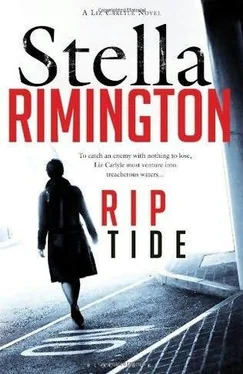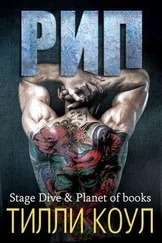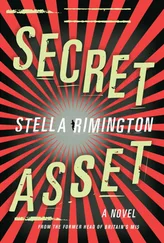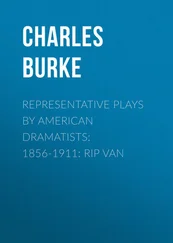Liz waited a moment but his gaze was steely again, determined. ‘I want to go back to my cell,’ he announced, and there was not even a hint of uncertainty in his voice.
Liz stood up reluctantly. ‘If you change your mind, let them know and I’ll come back.’ She walked over to the door, and the guard opened it to let her through. Khan could have asked to go to his cell an hour ago and spared us both, she thought. But at least she’d learned one useful thing.
Liz and Cassale retraced their steps to the grim reception room on the Rue Messier side of the prison. ‘Let’s get out of this place and have some coffee,’ he suggested, to Liz’s relief.
Outside the prison she breathed deeply, taking in lungsful of warm air and blinking in the bright midday sun. Cassale took her elbow. ‘This way,’ he said, steering her along the pavement towards the Boulevard Arago, where the new leaves were unfurling on the plane trees.
They stopped at a pavement café. As the coffee arrived, Cassale lit a Gitane and asked, ‘Any luck?’
‘Not much,’ she admitted.
‘Did he talk at all?’
She waited while a young man walked past their table. He was dark – from Algeria perhaps, or equally plausibly from the Middle East. For a moment it looked as though he might sit down nearby, but he went inside the café.
Liz said with a snort, ‘He certainly talked! He would have made a great storyteller in another life. He was trying to convince me that he’s been swanning round Europe, apparently without a passport or any money, and ended up in Somalia by mistake. I’ll send you my notes of what he said; if you believe any of it I’ll be amazed.’
Cassale looked sympathetic. ‘Frustrating. Still, it’s good that he talked at all. Well done.’
‘He did more or less acknowledge that he was acting under someone else’s orders – and that he wasn’t given the orders in Pakistan.’
‘Really? Where did he receive them then – in England?’
‘I don’t know, and he wasn’t saying. If you can find out anything about that it would be a big help.’
Cassale nodded. ‘Do you know if you will want him back in England?’
‘We’ve got a bit of work to do first. At least he admitted that he was Amir Khan. We’ve located his parents in Birmingham, and we’ll see what they say, though I gather they’re very respectable people and will probably be as surprised as I was to hear about their son. When I mentioned them, Khan got very upset – he just managed to stop himself from crying. You might want to try that on him again.’ Liz looked at her watch. ‘I’d better be going if I’m to catch my train.’
‘Of course.’ Cassale put some coins on the table and pushed back his chair. ‘Before you do, is there is anything in particular we should try and get out of him? Assuming he will now talk to us as well.’
A big assumption, thought Liz, remembering the tight-mouthed expression on Khan’s face as she’d left. ‘Two things for a start: where he really was after he left Pakistan, and of course who was directing him.’
‘We will do our best.’ Cassale offered her his hand. ‘He is a mystery man, this Khan. I think somehow you and I will be seeing each other again.’
Liz walked back along the prison wall, retracing her steps to the Metro station. The high wall cast a deep shadow over the pavement now, a welcome relief from the bright sun for Liz in her black suit. She’d forgotten her sunglasses too and the glare was irritating her eyes.
She thought again of Maigret in the story. The prisoner he’d visited was about the same age as Khan, not much more than a boy, but he’d been condemned to death. The old prison must have witnessed any number of gruesome events – she wondered if they’d executed people in the courtyard where the prisoners had been exercising today. When she heard the sound of someone’s footsteps echoing on the pavement behind her, her back crawled and she turned round in alarm. It was only an old man a long way down the street – he must have been wearing particularly noisy shoes. But she was glad to reach the Metro station.
At Gare du Nord she had half an hour to wait before going through to the Eurostar departure area, so she stopped to buy a baguette sandwich and a bottle of water. The station was crowded and as she queued she smiled, chiding herself for letting the prison get under her skin. She’d never been quite so shaken by a visit before. Perhaps it was the contrast between the Santé’s ancient history and the very modern-day events that had brought Amir Khan there.
But then, it wasn’t really modern at all – piracy was one of the oldest crimes in the book. Not that Khan seemed much of a pirate. But whatever he was, he’d given nothing away to help her unravel his story. Not until he’d made that one slip. But what did it mean? If he hadn’t received his orders in Pakistan, where had he got them from?
Liz paid for her sandwich and looked round for a free table. As she sat down, a young man with a dark complexion got up and walked away. Somehow he looked familiar – was it the same one who had walked into the café when she and Cassale had been having coffee? Liz watched as he walked away down the platform and noticed a book sticking out of the pocket of his jeans. Her mind flicked back to the man in the Metro that morning, standing in front of her when she had sat down, with L’Étranger in his pocket.
This man was too far away by now for her to see the title of the book. Could it be him again? If so, then that was too much of a coincidence. She got up and walked quickly down the platform, following the man who was now some distance ahead of her and moving fast. She managed to keep him in sight until he turned into an exit at the end of the platform. She broke into a run but when she got to the exit, she found there were three separate passages leading off in different directions and no sign of the man in any of them. She stood there panting, feeling stupid yet still uneasy, and then she slowly retraced her steps back to the café. When she got there, someone had taken her sandwich.
They had slaughtered the goat that afternoon. Taban had seen countless animals killed before, but he had been disgusted by the zeal with which these new men in the camp had despatched the little creature. One held the struggling animal while another slashed its neck with a knife. As blood gushed from the scrawny throat and the body twitched, cries of delight went up from the group.
Now Taban was tending the big pot, using an enormous wooden spoon to stir the cut-up chunks of meat that were bubbling together with red beans and tamaandho. On a brazier next to the pot, flatbreads cooked over the driftwood fire.
They were only seven miles from Mogadishu, but it could have been seven thousand. Their camp sat on a spit of sand behind a dune, overlooking the Indian Ocean. The nearest dwellings were half a mile away, the rundown shacks of an almost abandoned fishing village.
He knew the village well; he had grown up there with his father and an elder brother. He couldn’t remember his mother – she had died of a wasting disease when he was just two – so he had never missed her, and his childhood had been happy. He had gone to school some of the time, but more often he’d helped his father fish; he knew the local waters inside out before he was ten. In the early morning they would cast off in their little boat, its bow stuffed with nets, and by midday, if they were lucky, they would chug back laden with anchovies, sardines and mackerel, sometimes a tuna, and very occasionally a shark. They would cart their catch to the broken-concrete highway, where the lorry bound for Mogadishu would stop and the driver get down to haggle with their father over the price of their haul.
Читать дальше












